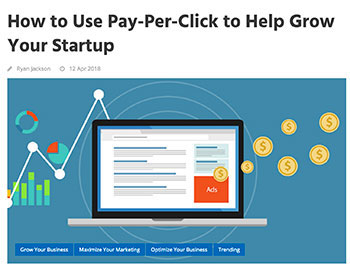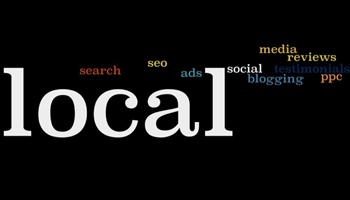

There are many tools out there, described as 'free' and 'easy to set up and use'. Why, then, are there so many people offering training courses on these tools?
I have met numerous experts in the last few months, not least the many who can help business people get more about of their marketing budgets.
Ive talked a little about social media and my belief that its partly that title which puts some business people off.
There are many tools out there, described as "free" and "easy to set up and use". Well, yes, many of them are free and they are easy to set up and, looking at the menu options, they would appear easy to use.
Why, then, are there so many people offering training courses on these tools?
2 reasons strike me - define "easy" and fear. In most cases, the tool seems easy to use, when you know how. The more menu options there are to make it easier for the user, the more you have to know. If there are fewer menu options, you may have to work through them and all the options within them.
Twitter has few options - and then many people use other tools to maintain their tweets as the core tool doesnt do as much as they want it to. LinkedIn has vast menus and it takes quite a while to find your way round and teach yourself.
And fear? Well, if you do it wrong its out "there", isnt it? Millions of people can see you make a mistake. Yes and no. How many people have millions of followers? There are odd scare stories when people have really made a fool out of something and its been posted and re-posted endlessly. For most of us, this is so unlikely to happen - amongst our typos and spelling mistakes; misquotes; attaching an out of focus picture; a blog article thats a bit long - thats the worst thats likely to happen.
My main gripe, though, is not that the IT trainers will capitalise on their own ability to get to grips with the software quickly, combined with others fears, its that they concentrate on the software and what it can do. Wheres the strategy? Wheres the planning? Its true that understanding more about what some of the tools and sites can do, will help you to think more about how to use them well for you and your business.
But, if youre not sure where to start, to me "what am I trying to achieve?" is more important than "how do I use the tool?" Im no expert - but Ive met quite a few who claim to be and Ive formed my own opinions about them and Id be happy to discuss my experiences with anyone and pass on details.
Sue Cohen has more than 20 years experience in Learning and Development.
She started her working life as an accountant and moved into training accountancy and other technical skills, before moving into skills and management training.
Over the last 20 years, she has helped many middle and senior managers to develop their management and personal skills including teamwork and leadership, performance management, networking and collaboration skills.
For a number of years, she was the senior manager within an in-house training team for a large firm of accountants, managing a team of trainers and the budgets, along with various firm-wide projects.
She now works as an independent learning consultant, largely with professional services firms.
As you can see from her book, her work with LinkedIn has evolved alongside her consultancy business. The use of LinkedIn has become an important element of her work with clients on relationship-building and networking skills.
Outside of work, Sue is a busy family person and relaxes with Sudoku puzzles and knitting.
Links / contact
www.suecohen.co.uk
www.suecohen.wordpress.com
http://uk.linkedin.com/in/suecohen01
www.twitter.com/suecoh
sue@suecohen.co.uk
(+44) 07971 400653 / (+44) 020 8953 6477
Sue Cohen
http://www.suecohen.co.uk





As we cannot be experts in every relevant subject, we would love to receive 'guest' articles that may be of interest to anyone running their own business or thinking of doing so. ADD YOUR ARTICLE
